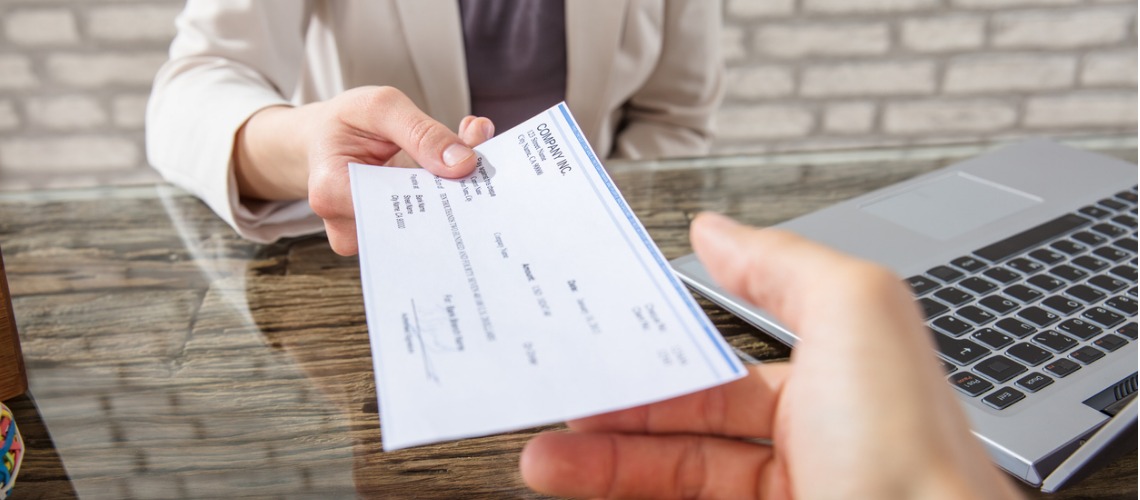
Getting Started with Money Management - Young Adults
Landing your first job can be exciting. Since you are earning your own money, you can be more independent. You can buy things you need and want by yourself, instead of having to rely on others.
However, you don't want to get carried away. It's easy to spend money when you have it but spending too much can lead to problems later in life. That's why it's important to learn how to manage your money at an early age.
Savings
One of the first steps towards saving is to start a checking account. Otherwise, where are you going to keep all your paychecks? It is important that you start a savings account as well. That way, you can set money aside for any big purchases or financial goals you'll need or want in the future. For example, these can include:
- A car.
- A college education (tuition, books, etc.).
- A house.
- Investments, such as a retirement plan.
- New electronics, like a phone or TV.
- Much more
It also helps to have emergency funds set aside in a savings account. This will give you a safety net for any unexpected costs. To read more about this, see the "Emergency Fund" section below.
Credit Cards
You can also consider applying for a credit card, along with having a debit card for your checking account. Having a credit card can help you build your credit score and credit history if you use it responsibly. Having a good credit score can be beneficial when you apply for a loan or mortgage later in life. However, be careful with how much you buy with credit cards. You don't want to get yourself into a pile of debt!
Controlling Your Spending
You'll come across plenty of "little" expenses in life, but those "little" expenses can add up fast. Did you know there are a lot of simple ways to save on these costs? Here are a few examples of good habits to get into:
Food
- Bring a shopping list. This helps you buy only what you need.
- Buy store brands or generic brands when you can.
- Brew coffee or tea at home instead of buying a cup.
- Cook at home more often instead of going out.
- Don't feel like you have to stop going to restaurants or cafés! Consider budgeting for restaurant visits so that you can still enjoy them as a social event.
Cable/Satellite
- Cable can be expensive. Thankfully, the Internet provides cheaper alternatives. Today, more and more people are "cord-cutting" and switching to streaming services like Netflix, Hulu, and HBO Go. Many of these services carry the same shows that are currently airing, as well as original content.
- When it comes to movies, you can use a streaming service, rent from a video store, or online rental service. While going out to a movie is okay every once in a while, it's more expensive.
Phone
- If you use a cell phone, you probably don't need a landline. In fact, according to Fortune, most American households don't as of 2017.1 Cutting wired service out of your bill can be a big money-saver.
- Speaking of cell phones, do you fully use your data plan? If not, you may want to switch to a different plan instead.
Other
- Carpool if possible. This helps save money on gas. If you live in a city, use public transit.
- Sodas and juices at restaurants can get expensive. Order water instead to save money.
- Consider going to restaurants at lunch instead of dinner. Lunch prices tend to be lower.
- Go to matinees or early shows at the theater. Tickets are usually cheaper for early morning show times.
- Don't pay for shipping, as many services offer free options. Waiting a few extra days is worth the money you'll save.2
- Don't buy lottery tickets. Your chances of getting any returns from them is slim. You're usually better off spending your money elsewhere.2
Overall, if you're in doubt, ask yourself whether you really need or want to buy something before you do. Decide if it will be worth purchasing.
Emergency Fund
No matter what, something unexpected is probably going to happen at some point in your life. You may be faced with a steep medical bill, costly repairs on your car, or even job loss. That's why it's important to have a fund set aside to use when disaster strikes. You can keep this money in your savings account or start a new savings account just for emergency funds. When saving money, you should always have a way of keeping track of the money you put into your fund.
You should put at least 2-6 months' worth of living expenses in your fund, but it might be safer to keep 9 months' worth. After all, 9 months provides a good shield in case of job loss. This can be a lot of money to put aside right away, so start with a smaller amount and build it from there. You can even create a budget that specifies an amount to put away every pay day.
Next Steps
Now that you have learned more about money management, you can start using these skills to help you save money. Here are a few extra ways to develop good budgeting habits:
- Learn more about budgeting.
- Have a plan for debt.
- Have a savings goal.
- Check and improve your current plans when you can.
Sources
1 https://fortune.com/2017/05/04/cut-landline-phone-service/
3https://www.investopedia.com/news/18-ways-master-your-money-2018/
Related Resources

Social Security Administration: Work Incentives

Money Management Guide

Building an Emergency Fund

How to Keep Your Financial Information Safe Online

Tips for Youth - Balancing Work and Play

Saving For and Buying a Car

Budgeting Basics

What You Need to Know Before Applying for a Credit Card!

Banking and Savings 101
